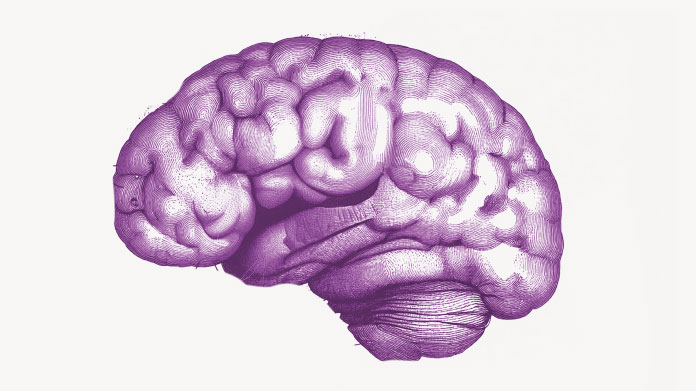What’s the best supplement for boosting memory?
Are there any dietary supplements that genuinely help improve memory and cognitive problems?

Yes, there are several supplements that offer definite benefits for memory and cognition – making it easier to recall forgotten names, numbers, memories and passwords (a phenomenon known as lethologica or ‘tip of the tongue’), or simply halting the cognitive decline that comes with age.
DHA and phosphatidylserine supplements
DHA is a type of omega-3 fatty acid from marine sources which can improve recall of both new and old memories. It is found in the body’s cell membranes where it increases flexibility. The more supple a cell membrane, the faster the processes of transduction and neurotransmission. Taking DHA supplements thus results in a progressive increase in membrane flexibility, particularly in brain cells. This promotes the development of neural extensions, the establishment of synapses, neural plasticity, and the maturation of neurons and their migration towards target zones (1-2) – mechanisms which are all involved in memorisation and learning.
Because they also produce significant benefits for cardiovascular health, omega-3 are included in all kinds of quality supplements. Phosphatidylserine, another essential fatty acid found in neuron membranes, acts in exactly the same way.
It’s advisable to supplement with both (Super Omega-3 and PS 100) for several months. You can expect to see improvements during and after the supplementation period.
Huperzine A
Though relatively unknown, huperzine A is one of the best supplements available for treating memory problems. Like caffeine, it is an alkaloid extract of a medicinal plant. Its function is simple: it prevents the breakdown of acetylcholine (a neurotransmitter essential for memory and learning) and in doing so, increases its levels (3). It also helps protect neurons against cell death caused by excessive glutamate levels (4-5). The doses used in clinical trials demonstrating its efficacy (improvements in memory and behavior in individuals with Alzheimer’s disease, advanced cognitive decline or basic memory problems) (6-8) ranged from 100 µg to 400 µg a day.
A supplement to prioritise when signs of decline are already apparent, or in cases of recurrent memory problems.
Standardized extracts of Ginkgo biloba
Numerous trials have shown that Ginkgo biloba is able to optimise cognitive function while also curbing cerebral aging. Its ability to protect brain cells from oxidation is due to its high content in terpene lactones (9-11), helping to boost energy conversion and consolidate existing neural circuits (12). These circuits ensure the preservation of our memories and optimisation of our cognitive faculties. Other studies have shown that extracts standardized in terpene lactones increase serotonin in synapses which boosts activity in the hippocampus, a memory-integrating structure in the brain.
A recent meta-analysis suggested that a daily dose of 100mg-200mg of Ginkgo extract for at least three months is generally advisable for people wishing to gradually improve aspects of their day to day life (difficulties concentrating, small changes in memory, confusion, poor cognitive efficacy …) (13).
Standardized extracts of Bacopa monnieri
The jewel of Ayurvedic medicine, bacopa improves several specific elements of cognitive function, such as speed of information-processing and memory. Research has identified its ability to increase certain neuromolecular mechanisms involved in the junctions between brain cells (synapses), particularly in the hippocampus, an important site for memory (14).
A number of clinical trials (15-16) have demonstrated significant improvements from supplementing with bacopa (in most cases, for at least 12 weeks), particularly in learning, free recall (17-19), associative memory (20), attentional memory (21) and visual memory. In most of the trials, performance was measured objectively (using reliable, scientifically-recognized memory tests) and systematically compared with placebo.
Provided, that is, that you choose supplements high in baccosides (the active principles).
To a lesser degree, the following substances have also proved their worth: choline, the B group vitamins (particularly B6, B9 and B12), curcumin (from turmeric), ginseng and green tea.
References
- M. Lavialle et S. Layé, « Acides gras poly-insaturés (oméga 3, oméga 6) et fonctionnement du système nerveux central », Innov. Agron., vol. 10, p. 25 42, 2010.
- Bretillon, L., Thuret, G., Grégoire, S., Acar, N., Joffre, C., Bron, A.M., Gain, P., CreuzotGarcher, C.P., 2008b. Lipid and fatty acid profile of the retina, retinal pigment epithelium/choroid, and the lacrimal gland, and associations with adipose tissue fatty acids in human subjects. Exp. Eye Res. 87, 521–528. doi:10.1016/j.exer.2008.08.010
- Wang LM, Han YF, Tang XC. Huperzine A improves cognitive deficits caused by chronic cerebral hypoperfusion in rats. Eur J Pharmacol. 2000;398:65-72.
- Ved HS, Koenig ML, Dave JR, et al. Huperzine A, a potential therapeutic agent for dementia, reduces neuronal cell death caused by glutamate. Neuroreport. 1997;8:963–968.
- Zhou J, Zhang HY, Tang XC. Huperzine A attenuates cognitive deficits and hippocampal neuronal damage after transient global ischemia in gerbils. Neurosci Lett. 2001;313:137-140.
- Xu SS, Goa ZX, Weng Z, et al. Efficacy of tablet huperzine-A on memory, cognition, and behavior in Alzheimer's disease. Zhongguo Yao Li Xue Bao. 1995;16:391–395.
- Zhang RW, Tang XC, Han YY, et al. Drug evaluation of huperzine A in the treatment of senile memory disorders [in Chinese; English abstract]. Zhongguo Yao Li Xue Bao. 1991;12:250–252.
- Li J, Wu HM, Zhou RL, Liu GJ, Dong BR. Huperzine A for Alzheimer's disease. Cochrane Database of Systematic Reviews. 2008;(2):CD005592
- Abdel-Kader R, Hauptmann S, Keil U, et al. Stabilization of mitochondrial function by Ginkgo biloba extract (EGb 761). Pharmacol Res. 2007;56(6):493–502.
- Eckert A, Keil U, Kressmann S, et al. Effects of EGb 761 Ginkgo biloba extract on mitochondrial function and oxidative stress. Pharmacopsychiatry. 2003;36(Suppl 1):S15–23.
- Janssens D, Remacle J, Drieu K, et al. Protection of mitochondrial respiration activity by bilobalide. Biochem Pharmacol. 1999;58(1):109–19.
- Tchantchou F, Lacor PN, Cao Z, et al. Stimulation of neurogenesis and synaptogenesis by bilobalide and quercetin via common final pathway in hippocampal neurons. J Alzheimers Dis. 2009;18(4):787–98.
- Ahlemeyer B, Krieglstein J. Neuroprotective effects of Ginkgo biloba extract. Cell Mol Life Sci. 2003;60(9):1779–92.
- G.M. McPhee, L.A. Downey, C. Stough, Cognitive training and Bacopa monnieri: evidence for a combined intervention to alleviate age associated cognitive decline, Medical Hypotheses (2016), doi: http:// dx.doi.org/10.1016/j.mehy.2016.09.002
- Pase MP, Kean J, Sarris J, Neale C, Scholey AB, Stough C. The cognitive-enhancing effects of Bacopa monnieri: a systematic review of randomized, controlled human clinical trials. J Altern Complement Med. 2012 Jul;18(7):647-52. doi: 10.1089/acm.2011.0367. Epub 2012 Jul 2.
- G.M. McPhee, L.A. Downey, C. Stough, Cognitive training and Bacopa monnieri: evidence for a combined intervention to alleviate age associated cognitive decline, Medical Hypotheses (2016), doi: http:// dx.doi.org/10.1016/j.mehy.2016.09.002
- C. Calabrese, W.L. Gregory, M. Leo, D. Kraemer, K. Bone and B. Oken, Effects of a Standardized Bacopa monnieri Extract on Cognitive Performance, Anxiety, and Depression in the Elderly: A Randomized, Double-Blind, Placebo-Controlled Trial, J Altern Complement Med 14 (2008), pp. 707-713.
- Morgan and J. Stevens, Does Bacopa monnieri Improve Memory Performance in Older Persons? Results of a Randomized, Placebo-Controlled, Double-Blind Trial, J Altern Complement Med 16 (2010), pp. 753-759
- Stough, J. Lloyd, J. Clarke, et al., The chronic effects of an extract of Bacopa monniera (Brahmi) on cognitive function in healthy human subjects, Psychopharmacology (Berl) 156 (2001), pp. 481-484.
- S. Roodenrys, D. Booth, S. Bulzomi, A. Phipps, C. Micallef and J. Smoker, Chronic effects of Brahmi (Bacopa monnieri) on human memory, Neuropsychopharmacology 27 (2002), pp. 279-281.
- H.C. Barbhaiya, R.P. Desai, K. Pravina, et al., Efficacy and tolerability of BacoMind on memory improvement in elderly participants - a double blind placebo controlled study, J Pharmacol Toxicol 3 (2008), pp. 425-434.
Keywords
21 Hours
great products and prices
great products and prices
Marie
6 Days
Easy to navigate site
Easy to navigate site, had what I was searching for, good price. easy order-check out
James Tucker
12 Days
My skin is clearing up nicely!
Pretty good for my skin so far.
Christian
15 Days
The new packaging is excellent
The new packaging is excellent - finally! No more squashed boxes and torn envelopes.
GORAN
15 Days
Great Product
Great Product
Larry Garrett
20 Days
Quick shipping
Quick shipping; good price. No issues!
Mary McCarty
21 Days
Thr product is very good and is helping…
Thr product is very good and is helping me on my health. Then is always on time
LUGO Luz
24 Days
Buying was fine
Buying was fine. I had problems with the website not recognizing my login info, and had to call to get it fixed. Other than that, everything was good.
David S. Clark
24 Days
Your super maca and super ginseng are…phenomenal
Your super maca and super ginseng are phenomenal supplements that compliment each other when taking them together. Fantastic feeling of well-being and lots of mid day energy without the crash.
Keith Mason
27 Days
I have had amazing results with every…
I have had amazing results with every supplement I've purchased. I am extremely satisfied with this company
kirstin Torres
27 Days
Fine products
Fine products . They are on the leading edge of online supplements. The only issue -so far-is they sometime run out of subscription items.
Jason Argos
29 Days
The ordering process is very user…
The ordering process is very user friendly and the products always come in a timely manner.
CARTER Rhonda
31 Days
The price for Dr
The price for Dr. Pero's AC-11 is reasonable and in line with his views. (my former colleague). Keep it pure.
CAMPBELL Clayton
33 Days
Right on every time.
Right on every time.
Arthur Nicholas
36 Days
They are cheaper than everyone else and…
They are cheaper than everyone else and the shipping was fast. Great company.
Patricia Adams




